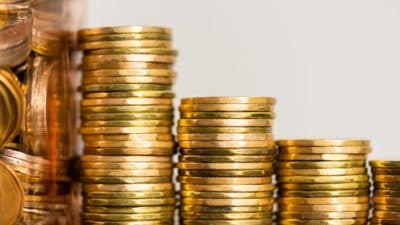When the stock market falls, there’s really nowhere to hide. It doesn’t matter if you hold exchange-traded funds (ETFs) or stocks. However, there are key differences in investing in them.
When you invest in ETFs, it’s a passive way to invest. Additionally, you might feel more at ease because ETFs essentially match the performance of the underlying indices (while the indices’ performance is based on the weighted average performance of the underlying equities or bonds). Because ETFs hold a basket of things, they are generally less volatile than individual stocks.
Moreover, when investing in ETFs, you can look for industries or sectors that offer good value, income, or growth. For example, you might find iShares S&P TSX Capped Energy Index ETF (TSX:XEG) to be a good value play, as it trades near its 12-year low and oil prices have improved and stabilized above US$60 per barrel, while oil and gas producers have generally lowered their costs and improved their efficiency since the oil price collapse in 2014.
Notably, about 48% of the fund is in Suncor Energy and Canadian Natural Resources, which are stable and large-cap players.

Investing in stocks
Investing in individual stocks requires active management on your part. By investing in individual stocks, you can get fabulous, outperforming returns in Alimentation Couche-Tard (TSX:ATD.B). An investment in Couche-Tard shares in 2007 right before the recession, which was triggered by a financial crisis in 2008-2009, would have delivered annualized returns of about 24%. That beats any benchmark ETF you might use as a comparison.
However, buying ZCL Composites would have been a wildly different story. It delivered annualized returns of about -2% in the period.
Investors must be reminded that behind each stock is a business. Other than being aware of the nature of the business (e.g., if is cyclical), investors must also be aware of the valuation of the stock they’re paying. Moreover, the valuation of a stock changes as the business changes. If the profitability of a company falls, the stock might have become more expensive despite a price drop.
Investor takeaway
When investing in ETFs, look for areas of value, income, or growth. For example, you might find value in an energy fund, income from a utility fund, and growth from a tech fund.
When investing in individual stocks, it requires much more active management in that you can tweak your portfolio to your specific liking, whether your focus is on total returns, income, quality, stability, or a combination of all of the above. If you build your diversified portfolio properly with the above qualities, it could fare better in a market downturn than ETFs.








